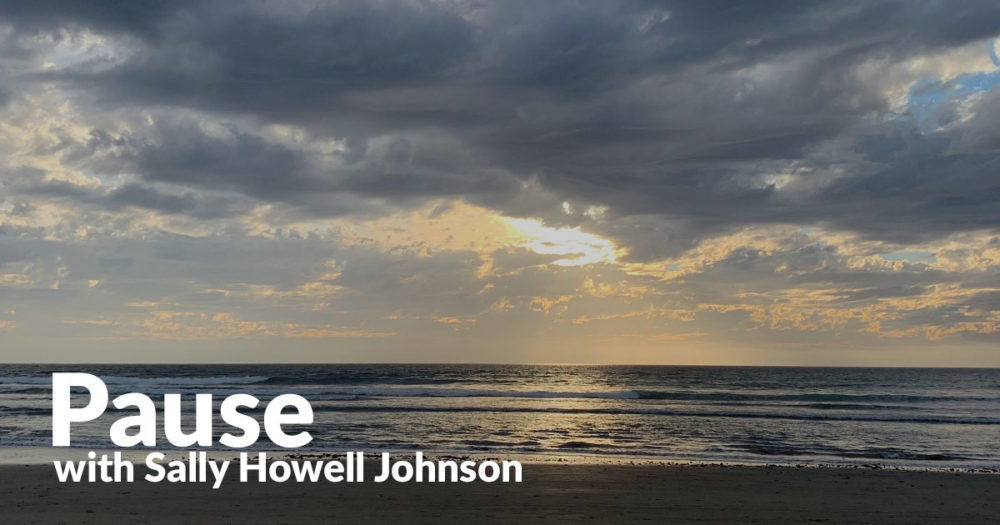“In the trance of overwork, we take everything for granted. We consume things, people, and information. We do not have time to savor this life, nor to care deeply and gently for ourselves, our loved ones, or our world; rather, with increasingly dizzying haste, we use them all up, and throw them away……. Sabbath time can be a revolutionary challenge to the violence of overwork, mindless accumulation, and the endless multiplication of desires, responsibilities, and accomplishments. Sabbath is a way of being in time where we remember who we are, remember what we know, and taste the gifts of spirit and eternity.”
~Wayne Muller
Yesterday I had the gift of a Sabbath afternoon. Visiting a friend’s cabin and farm which are held in balance on either side of a country road, I had the gift of sitting on the cabin screened porch looking out at the glistening lake. Boats moved slowly on the surface of the water and a light, cool breeze blew gently on our warm skin. After drinking in that beauty, we walked over to the farm,across fields dry with newly mown grass. Shepherding us as we made our way along the road was her sweet, gentle Border collie. Making our way through the trees and pathways, I began to realize that my breathing had changed and a peace had taken up residence where the city spurned turmoil lived. I noticed that my breaths were deeper, fuller and that my sense of smell was now filled with the sweetness of earth, clean air, and the scent of growing things. Looking over the community garden planted by lake residents, I marveled at how a small plot of land, handled with care and a certain hope, could have the power to bring strangers together over peas and potatoes and shared possibility.
You see, over the last few weeks, I had fallen into the trance of ‘too much.’ Too much work. Too much responsibility. Too much self-absorption. Too much to think about. Too much to do. Just too much. And as Wayne Muller states so well, that almost always leads to a trance-like state where we just keep adding to the pile when what is needed most is the slow, metered dropping of layers. Layers of tasks, responsibilities, obligations. Have you ever had this trance-like experience? Have you ever found yourself moving mindlessly and without passion from one thing to the next? Perhaps you are there right now. Eyes glazed. Walking to thing after thing without any oomph in your step. Instead, just going about the motions of this precious life.
In the rhythm of Creation, there is a built in cure for this state of being. In one of our primary stories of how everything came into being, the Holy One creates the world and then rests. Much of the Hebrew scriptures encourages, in fact demands, an observance of Sabbath: that time at which we recognize who we are and what our purpose here is. At the same time Sabbath reminds us that we are not God. This is, I have found, always a welcomed reminder. Sabbath, is a time set aside to not only rest but also glory in our living.
In the fast paced world in which we live, sometimes we must go to drastic lengths to observe Sabbath time. A myriad of technology must be turned off and stashed so as not to be distracted by all the ways we might be contacted. Sometimes it is necessary to go to someplace outside our home where the never-ending list of house projects looms. But mostly it is about turning off the chatter in our own heads, that pulls at our own hearts, that constantly wants us to be doing something, anything, to keep us from connecting with our own breath and the Divine Spirit which moves through us.
Yesterday as I walked the sweet smelling fields and breathed in the air that expanded my lungs, Sabbath washed over me. As I fed carrots to two, lovely milk chocolate colored horses, I looked into their deep brown eyes and allowed their calm, unhurried wisdom to teach me. As Percy, the Border collie, stayed close so we humans would not be lost in the woods, I felt protected in my Sabbath time. Protected and reminded of who I am and what I know. And I drank deeply from the well of eternity.

